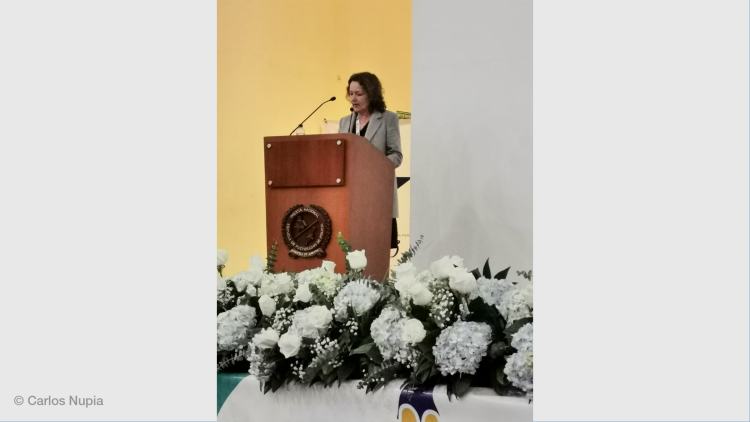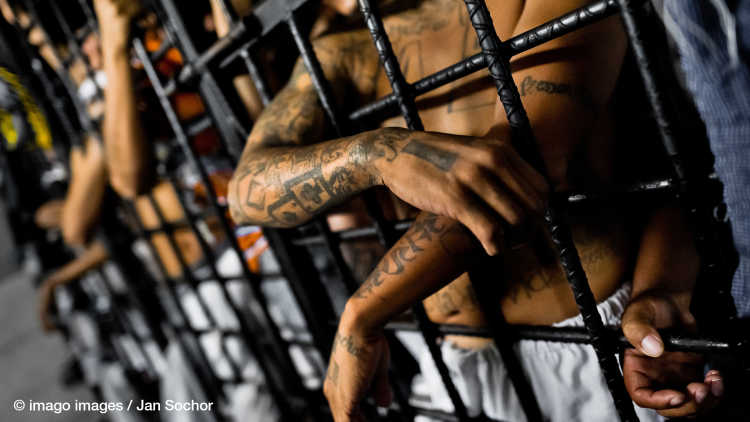- Home
- Research & Transfer
- Research Projects
- Security Sector Reform and the Stability of Post-War Peace
Security Sector Reform and the Stability of Post-War Peace
Security Sector Reform (SSR) is commonly defined as changes in the structure and conduct of those state institutions responsible for the prosecution and punishment of non-legal manifestations of violence: the military, police, and judiciary. Scholars and practitioners alike thereby see the process of SSR as one of the most vital elements for creating a stable post-war peace. The project investigates the conditions for this process.
DFG, 2016-2020
Team
Research Questions
The empirical record shows that SSR has been more successful in some cases than in others in contributing to post-war peace, understood here as the absence of collective, political violence. While SSR stands as a substantial contribution to peace after civil war in Liberia (Aboagye and Rupiya, 2005) or Nicaragua (Kurtenbach, 2010), violence persisted in other cases where SSR was part of the peacebuilding effort, such as in the DRC. Against this background, the goal of the project is to identify why SSR leads to post-war peace in some cases but not in others. Thus, the research question guiding this project is: Under what conditions does SSR increase the stability of post-war peace?
Contribution to International Research
The project will contribute to past research in three ways. (1) Theoretically, we construct an argument on the impact of post-war SSR on peace that links closely to the debate of post-war institutional reform, a link that has been inadequately established by past research. In this argument, we particularly attend to the question of who controls a post-war SSR process. (2) Methodologically, we add to past research by testing our assumptions using a mixed-method research design that combines inductive case studies for theory-building with statistical analysis for theory-testing. This strategy allows us to formulate generalizable findings on the effects of SSR on peace as well as studying tangible steps of causal mechanisms. (3) Empirically, we advance past research by selecting cases from distinct world regions (El Salvador, the Uganda, Nepal, Iraq and Lebanon), while previous studies often compare SSR intra-regionally (e.g. Heiduk, 2014; Slaby, 2003). Studying cases from different regions allows us to discover mechanisms of SSR that work across cultural contexts. We also study early and more recent cases of SSR to consider both short-term and long-term effects.
Research Design and Methods
We use a mixed-method research design that connects theory-building case studies with theory-testing statistical analysis. (1) First, we conduct three theory-building, inductive case studies for which we select cases of SSR that past research as well as policy reports consider as instances of successful or unsuccessful SSR. To ensure cross-regional comparison, we choose cases from different world regions. Based on the expertise of the applicants, the cases are from Latin America, sub-Saharan Africa, and Asia. Based on these criteria, the following countries are selected: El Salvador, the Uganda as well as Nepal. Underlying causal mechanisms will be traced by performing process tracing that draws on semi-structured elite and expert interviews with several groups of interviewees during field work. The inclusion of an additional colleague allowed us to expand this design with a comparative desk study on SSR in the middle East (Iraq and Lebanon). (2) Choosing to first conduct the case study analysis in our research design is a strategy that allows us not only to refine our theory and develop hypotheses out of our assumptions, but to also identify more refined variables for which we can then explore more generalizable relationships. Thus, in a second step, we test the proposed relationships in a statistical survival analysis that allows us to formulate generalizable observations on the impact of SSR on the stability of post-war peace. We test our hypotheses on all post-war peace periods (1990-2013).
Preliminary Findings
A first literature survey on current SSR debates and the field work on the SSR processes in our cases highlight four factors. First, there is a necessity to link the analysis of SSR to the theoretic debates on the role of the military (and other armed actors) in political, economic and social development. Secondly, cross area comparisons have a very promising potential as they allow to identify generalizable factors influencing SSR processes. Third, the desk study on the middle East showed the importance to include regional influences on the armed actors during war and their reform afterwards that are rarely included systematically currently. Fourth, the role of judicial reform and its interactions with the reforms in the security institutions (police, military) is rather under-researched. The role of amnesties is a case in point: In El Salvador a broad amnesty even for gross human rights violations during the war was a turning point in the peace process rendering the formally binding recommendations of the international truth commission regarding SSR largely irrelevant. Contrary to this, calls for amnesty in Uganda came from local communities aiming at the reintegration of child soldiers. These differences shed light on the necessity to put amnesties in the context of local and political power relations. Due to a lack of comparable data regarding judicial reforms after war our data collection will focus on this topic.
















